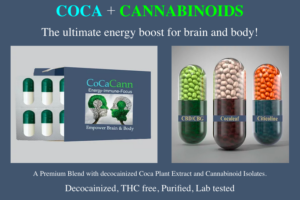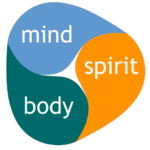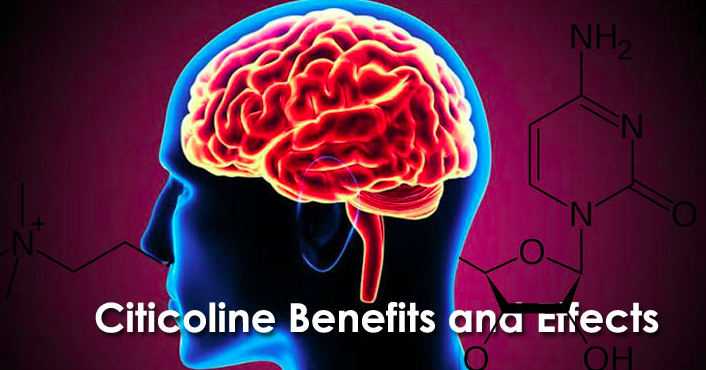
In the orchestra of cognitive health, Citicoline takes center stage as a naturally occurring compound, captivating attention and acclaim for its burgeoning recognition. As the star of the show, Citicoline has gracefully stepped into the limelight, becoming a linchpin in the pursuit of cognitive brilliance and neuroprotection. Nowhere is this spotlight more pronounced than in CocaCann, where citicoline reigns supreme as the key player, elevating the supplement’s profile in the realm of brain health. In the following exploration, we embark on a journey through the nuanced landscape of citicoline’s medical benefits, unraveling its profound contributions to cognitive enhancement, neuroprotection, and overall mental well-being. Nestled within the context of CocaCann,Citicoline emerges not just as an ingredient but as a beacon promising a harmonious symphony of cognitive vitality and resilience.
Medical benefits of Citicoline: As a naturally occurring compound, Citicoline shines in the realm of cognitive health, offering a diverse array of medical benefits that encompass cognitive enhancement, neuroprotection, and overall mental well-being.
- Cognitive Enhancement:Citicoline’s role as a precursor to phosphatidylcholine, a vital component of brain cell membranes, positions it as an essential nutrient for cognitive function. Studies suggest that citicoline may enhance various cognitive processes, including attention, memory, and learning [1].
- Neuroprotection: Research indicates that citicoline exhibits neuroprotective properties by safeguarding neurons from damage. Its involvement in preserving cell membrane integrity and supporting mitochondrial function contributes to its potential in reducing the risk of neurodegenerative diseases [2].
- Stroke Recovery: Citicoline’s potential in aiding stroke recovery has been a subject of clinical trials. Evidence suggests that it may improve neurological outcomes post-ischemic strokes by enhancing cellular repair mechanisms in the damaged brain [3].
- Vision Health: The optic nerve benefits from citicoline’s potential, making it a topic of interest in ophthalmology. Research indicates that citicoline may protect and support the optic nerve, showcasing its relevance to vision health [4].
- Age-Related Cognitive Decline: Cognitive decline is a natural part of aging, and citicoline supplementation has been explored for its ability to mitigate this decline. Studies propose that it may support overall brain health and maintain cognitive abilities in older adults [5].
- Mood and Mental Energy: Citicoline’s influence extends to mood and mental energy levels, with research suggesting potential positive impacts on conditions like depression and anxiety. Users also report improvements in focus and mental clarity with citicoline supplementation [6].
- Alzheimer’s Disease: Ongoing research investigates citicoline’s potential role in Alzheimer’s disease, with some studies proposing a neuroprotective effect. Its exploration as a supportive measure in managing this neurodegenerative condition showcases its versatility [7].
- Traumatic Brain Injury (TBI): Citicoline’s potential in supporting recovery from traumatic brain injury is a subject of interest. Studies indicate its contribution to the repair of damaged neural tissues and improvement in cognitive outcomes post-TBI [8].
- ADHD Support: Preliminary studies suggest a positive impact of citicoline on attention and behavior in individuals with ADHD. Further research is needed to establish its role in the management of attention deficit hyperactivity disorder [9].
- Safety and Tolerability: While citicoline is generally considered safe with few reported side effects, it’s crucial for individuals to consult healthcare professionals before starting any supplementation, especially if on medication or with underlying health conditions [10].
Conclusion: In the pursuit of cognitive well-being, citicoline emerges as a pivotal force within CocaCann’s innovative formulation. As a naturally occurring compound, citicoline lends its cognitiveenhancing properties, neuroprotective benefits, and potential contributions to stroke recovery, vision health, age-related cognitive decline, and conditions like ADHD. The depth of its impact on brain health becomes even more profound when blended with CBD and CBG extracts and decocainized coca leaf in CoCaCann. The synergy achieved by the entourage effect, where citicoline, CBD, and CBG and coca leaf empower each other, forms the backbone of CocaCann’s comprehensive approach. This sophisticated fusion not only embodies the marriage of ancient wisdom and modern science but also represents a holistic solution that transcends individual components. As users embrace CocaCann, they step into a realm where the 3xC’s collaborate harmoniously, ushering in a new era of cognitive support that emphasizes enduring vitality and cognitive brilliance.
References:
[1]. Secades, J. J. “Citicoline in the treatment of cognitive impairment.” J Neurol Exp Neurosci 5.1 (2019): 14-26.
[2]. Grieb, Pawel. “Neuroprotective properties of citicoline: facts, doubts and unresolved issues.” CNS drugs 28 (2014): 185-193.
[3]. Overgaard, Karsten. “The effects of citicoline on acute ischemic stroke: a review.” Journal of Stroke and Cerebrovascular Diseases 23.7 (2014): 1764-1769.
[4]. Grieb, Paweł. “Citicoline and eye health.” Handbook of Nutrition, Diet, and the Eye. Academic Press, 2019. 585-603.
[5]. Gareri, Pietro, et al. “The role of citicoline in cognitive impairment: pharmacological characteristics, possible advantages, and doubts for an old drug with new perspectives.” Clinical interventions in aging (2015): 1421-1429.
[6]. Work, How Does Citocline. “Exploring the Science Behind the Potential Benefits of Citicoline.”
[7]. Piamonte, Bernadeth Lyn C., Adrian I. Espiritu, and Veeda Michelle M. Anlacan. “Effects of citicoline as an adjunct treatment for Alzheimer’s disease: a systematic review.” Journal of Alzheimer’s Disease 76.2 (2020): 725-732.
[8]. Zafonte, Ross D., et al. “Effect of citicoline on functional and cognitive status among patients with traumatic brain injury: Citicoline Brain Injury Treatment Trial (COBRIT).” Jama 308.19 (2012): 1993-2000.
[9]. McGlade, Erin, et al. “The effect of citicoline supplementation on motor speed and attention in adolescent males.” Journal of attention disorders 23.2 (2019): 121-134.
[10]. Secades, Julio J., and José Luis Lorenzo. “Citicoline: pharmacological and clinical review, 2006 update.” Methods and findings in experimental and clinical pharmacology 28 (2006): 1-56.


